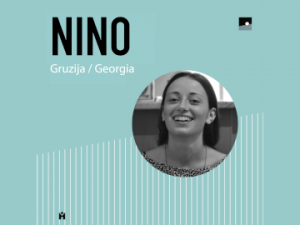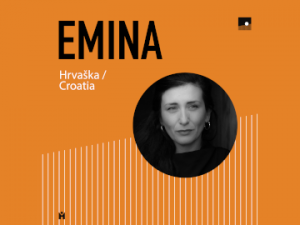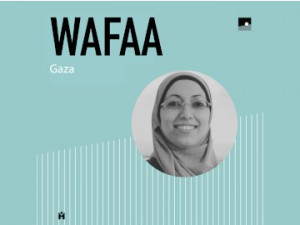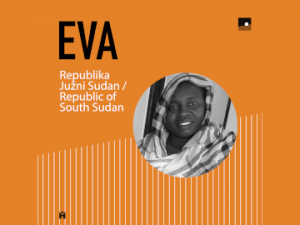Living Peace 4: Letters of Wars and Peace
15. 1. 2025 | Politics
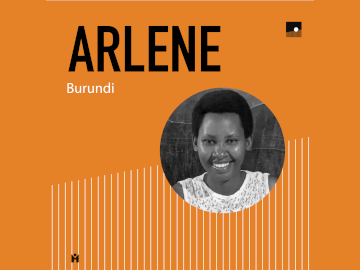
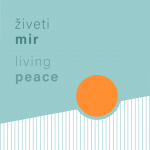 At the end of 2022, we at the Peace Institute, started organizing a series of public events entitled Thinking Peace as a response to the multitude of armed conflicts around the world. Since the world has been spiralling into dangerous global militarization, we wanted to rethink what is war, what is peace, and more importantly how to ensure a stable peace which would not be quickly engulfed in new conflicts and wars.
At the end of 2022, we at the Peace Institute, started organizing a series of public events entitled Thinking Peace as a response to the multitude of armed conflicts around the world. Since the world has been spiralling into dangerous global militarization, we wanted to rethink what is war, what is peace, and more importantly how to ensure a stable peace which would not be quickly engulfed in new conflicts and wars.
We want to expand on the Thinking Peace cycle and add new dimensions to imagining peace. With the help of amazing individuals worldwide, we are beginning a new series of public letters written by people whose lives were interrupted by war or who found themselves in a recent armed conflict. We have titled this series of letters as Living Peace to emphasize how important peace is and that people often only realize this importance when facing the brutality of war. We want to illustrate how people from Palestine, Ukraine, Rwanda, Bosnia and Herzegovina, Croatia, Serbia, Syria, Sudan, Afghanistan, Congo, Yemen and elsewhere think publicly about peace. How do the inhabitants of these regions face wars and military conflicts? What lessons can we learn from their intimate experiences and existential fears?
While opinions of world leaders who justify or even defend wars, dominate today’s media spheres, we want to amplify the voices that defend peace, reject violence and recognize equal rights for all. Having experienced war, they understand why it is essential to live in peace.
The fourth letter we are publishing was written by Arlene from Burundi:
“Through my studies, I learned that peace is not just the absence of war but rather creating justice and equality for everyone. In class, I often sit by the window and watch the world pass by, and a sense of gratitude fills me; here, I am safe, I can learn, and I can dream of making a difference. In Burundi, we need to solve the problems of poverty, inequality, and lack of education, which are some of the main reasons for the conflict. My goal is to one day return to Burundi and help rebuild a peaceful and just society. Burundi needs leaders who care about the people, not just their power. Rebuilding my country will take time, but I believe it is possible.”
”
Letter by Arlene from Burundi
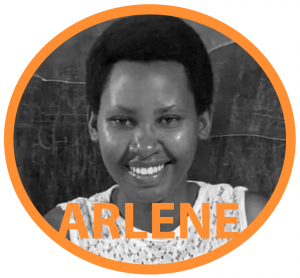 Living Peace: My Journey as a Refugee Girl
Living Peace: My Journey as a Refugee Girl
My name is Arlene IGIRANEZA, and I am from Burundi. I fled my country in 2015 when I was 14 years old. We were a family of seven, my father, my mother, me and my four brothers.
At the time, I was in my second year of secondary school (S2), but our lives were turned upside down when violence broke out in Burundi. President Pierre Nkurunziza announced he would run for a third term, which many believed was unconstitutional and violated the Arusha Accords, a peace agreement that had ended the Burundian Civil War in 2000. This caused protests and violence, and the government used force to silence the people. Every day, the streets filled with tense gatherings, shouting in defiance, while the air smelled of fear, teargas, and smoke from burning tires. The situation in Burundi was terrible. My father, a retired soldier, was being targeted, and we feared for our lives. At night, I lay awake listening to noises outside, footsteps, and voices, and my heart would pound, afraid of what might happen next. Each sound felt like a threat, a reminder that our safety was drifting away. People were being arrested, tortured, and even killed. Families were in a dilemma, and the country was in chaos. Fearing for our lives, fleeing was the only option to stay alive, so we had no choice but to flee. The decision to flee was not easy, but it was necessary. We left everything behind and became refugees.
In those chaotic days, the sounds of gunfire echoed through our neighborhoods, mingling with the cries of terrified families. My father, a retired soldier, felt the weight of danger bearing down on him, knowing that former soldiers like him were being targeted.
As refugees, we joined thousands of others who left everything behind, hoping to find peace and safety elsewhere. I will never forget the scene at the border, crowded with people, faces etched with worry and tiredness, crying children in their mother’s arms, and the sounds of whispers and pressurized footsteps as everyone tried to find a way through. It was a scene filled with despair, the unknown hanging over us like a dark cloud.
Life in the refugee camp was tough. Our lives shrank to small routines under a hot, unforgiving sun. Every day, I would stand in long lines for food, feeling the dry dust in my throat and the sun burning my skin. We lived in crowded tents, we lived in crowded conditions, struggling to get enough food and clothing. My parents, who did not have any other source of income, found it especially hard to cope. As the fourth child in my family, I also had to help my younger sibling, which made life even tougher. But despite everything, I kept my focus on education, knowing it was my only way out of poverty.
But even in exile, the shadows of Burundi’s crisis stayed. The weight of worry fell heavily on our hearts as we constantly thought about the family and friends we had left behind. The unforgettable stories of killings, disappearances, and abuses reached us, wrapping around us like a nightmare we couldn’t escape.
In 2016, I started my third year of secondary school (S3) in the camp. I worked hard, despite the continuous challenges. Some days, we didn’t have enough food to eat, and it was difficult to concentrate on my studies. The hunger made me light-headed and weak but I kept pushing myself to study because I had to believe that education could save me. And that it can save my family. I believed that if I could excel in school, I could help my family and maybe one-day return home. My siblings and I had to share clothes and books because we couldn’t afford to buy anything new. Still, I was determined to continue my education.
Between 2016 and 2019, many girls in the camp faced even harder struggles. Poverty led some of them to seek help from older men or boys just to get food or clothes. As a result, many young girls became pregnant, and their dreams of continuing their education were made impossible. It was heartbreaking to watch. It was painful to see young girls lose their dreams, their futures traded for survival. I would often see them with tired eyes and slumped shoulders, carrying babies on their backs as they walked the dusty paths of the camp. Their dreams of school were left behind, replaced by the daily struggle to survive. However, I was fortunate to receive a scholarship from ADRA that allowed me to attend a boarding school in Bugesera District. This scholarship was a blessing because it gave me a chance to focus on my studies without the constant pressure of finding basic needs like food.
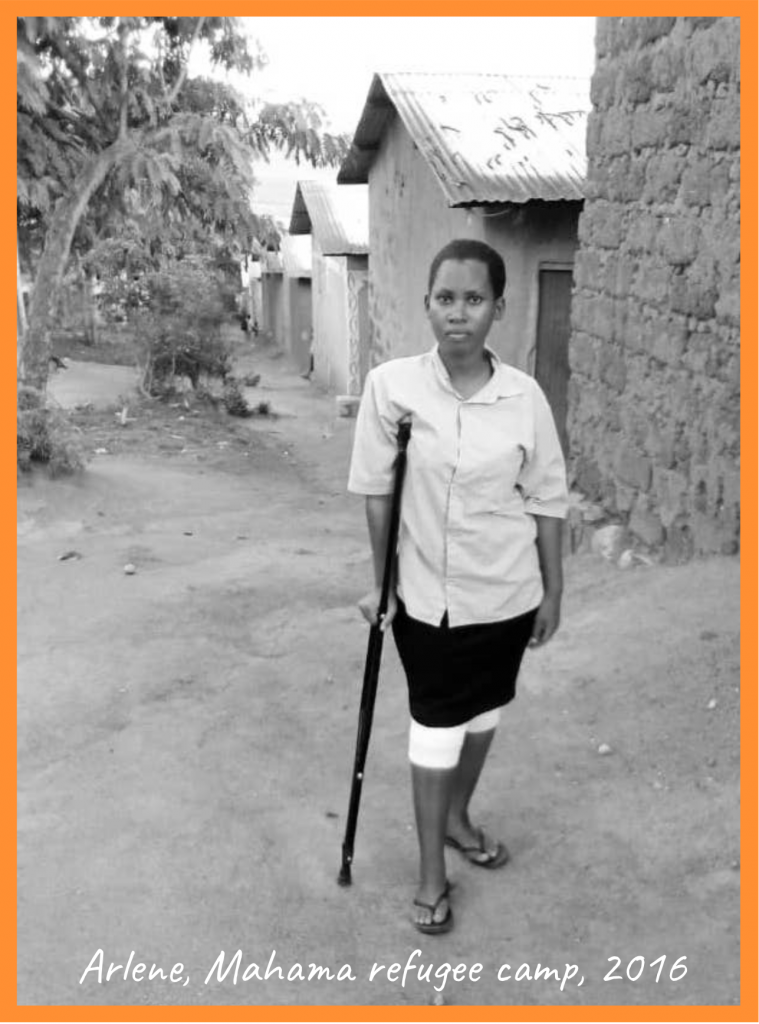 In 2022, I received another amazing opportunity: a scholarship from GIZ to study Peacebuilding and Development at the Protestant University of Rwanda. This was a dream come true for me. After all the struggles, I finally had the chance to learn how to help rebuild my country, something I had once only imagined. I remember feeling a sense of calm and relief wash over me as I arrived at the university, with its green fields and quiet halls, so different from the camp. The air felt different, lighter, like a new chapter.
In 2022, I received another amazing opportunity: a scholarship from GIZ to study Peacebuilding and Development at the Protestant University of Rwanda. This was a dream come true for me. After all the struggles, I finally had the chance to learn how to help rebuild my country, something I had once only imagined. I remember feeling a sense of calm and relief wash over me as I arrived at the university, with its green fields and quiet halls, so different from the camp. The air felt different, lighter, like a new chapter.
However, during my school years, I developed a painful condition in my knees. I had weak knee ligaments that caused me great pain, and there was no money to pay for treatment. The pain was like a sharp knife every time I took a step, but I couldn’t let it stop me. I had no choice but to keep going, even though it hurt. Being a refugee meant that even getting proper healthcare was difficult. I had to live with that pain, and this illness became a burden I had carried throughout my school years.
Through my studies, I learned that peace is not just the absence of war but rather creating justice and equality for everyone. In class, I often sit by the window and watch the world pass by, and a sense of gratitude fills me; here, I am safe, I can learn, and I can dream of making a difference. In Burundi, we need to solve the problems of poverty, inequality, and lack of education, which are some of the main reasons for the conflict. My goal is to one day return to Burundi and help rebuild a peaceful and just society. Burundi needs leaders who care about the people, not just their power. Rebuilding my country will take time, but I believe it is possible.
I believe that peace begins with education and support for the most vulnerable people. Girls, especially those living in refugee camps, need opportunities to study and grow. They need protection from the pressures of poverty that lead to unwanted pregnancies and dropouts from school. We must create a future where young girls do not have to choose between their education and survival.
Peace in Burundi, and the world, begins with dialogue, respect, and ensuring every individual’s right to live without fear. I imagine what it would be like to see Burundi safe, where children can walk to school without fear and families no longer have to run from their homes. I hope to one day stand in my home country, helping to rebuild it so no one else has to endure what we did. In my understanding, Burundi’s cycle of violence can be broken through genuine reconciliation, addressing past harms, and returning to the principles of the Arusha Accords, which once brought peace, also by ensuring ethnic power-sharing and political stability. The 2015 abandonment of these agreements led to chaos; I believe that peace can only come through inclusive governance that listens to all voices.
At a personal level, we can promote peace by fostering unity, rejecting divisive politics, and educating others about non-violence. Refugees, like myself, who have experienced war’s horrors, must be part of the solution, reminding the world of the cost of conflict. We must support grassroots movements that push for human rights and justice.
Globally, peace requires international cooperation. Governments must be held accountable, and efforts to build democratic institutions should be supported. Peace is a collective effort, requiring both local and global involvement. For Burundi and beyond, it means creating a world where no one has to flee their home, and children can grow up with hope rather than fear.
Letter by Arlene in Slovenian language | Read all letters | Thinking peace

